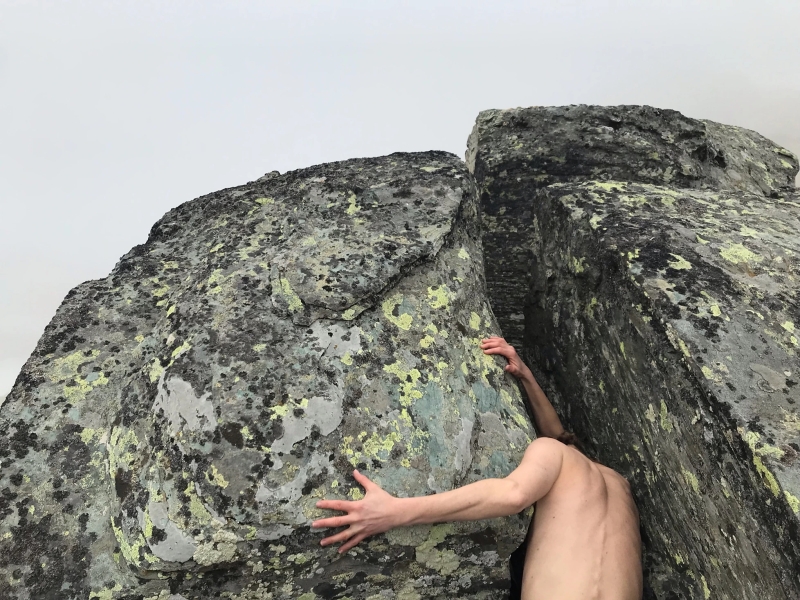
As part of the third edition of The Listening Biennial, Bureau for Listening and Nana Francisca Schottländer present the event Listening with Rocks — a combined performance and workshop that invites participants into an expanded practice of listening, attuning to the temporalities and agencies of the non-human world of rocks.
The session is part of Nana Francisca Schottländer's ongoing artistic research into the performative and transformative potentials of intimate encounters and exchanges between human and stones bodies in the series HEAVY KINSHIP (2016 -).
The performance is introduced by Bureau for Listening co-founder Lukas Lund, and conceptualized and facilitated by Nana Francisca Schottländer. The session engages stones as companions and co-listeners, offering an encounter with forms of time, memory, and resonance that vastly exceed human perception. Rocks hold traces of deep geological histories and movements; they invite us to slow down and shift into rhythms beyond the immediacy of human scales. Through a series of guided performative exercises and embodied explorations, participants will experiment with touching, sensing, and “listening through” stones — cultivating subtle forms of attunement to their materiality and presence.
After the performance, a workshop will unfold, attempting to critically reflect on and share with each other in what ways we may learn from and attend to the listening with rocks.
The event will be held in English. The bar will be open, offering beer and alcohol-free beverages. Entry to the talk is free, as is admission to all of O—Overgaden’s exhibitions.
Nana Francisca Schottländer (b. 1977, DK) is a Copenhagen-based artist working across choreography, performance, video, and installation. Using the body as a living tool for research and creation, her practice explores immersive, co-creational encounters with other-than-human entities and phenomena — from rocks and fungi to tides, soil, and landscapes marked by human intervention. Drawing on science, philosophy, and embodied knowledge, her work unfolds through long-duration investigations and site-specific performances that act as micro-laboratories for exchange between audience, place, and environment. Schottländer’s projects span installations, choreographed events, video works, and performative interventions in public space.
Lukas Quist Lund (b. 1997, DK) is a philosopher, art historian, and organiser working with interdisciplinary practices from a centre of philosophical and artistic “wondering.” He explores alternative research-action-methodologies and extra-institutional initiatives and projects, including TRAVERS, SHOUT, The Resting Labs (2024–), Center for Not-Knowing (2024–), 89–sound art learning community (2025–), and Bureau for Listening (2021–), of which he is the artistic director. Bureau for Listening is an artist and research group and publishing platform, investigating and promoting listening as a critical, empathic, and artistic practice that operates nomadically and transdisciplinarily, and strives to engage others in shared practices and projects.
The Listening Biennial is an international artistic and research initiative that highlights listening as a relational capacity—a philosophical, political, creative, and research-driven practice. The Biennial operates as a decentralized global platform, commissioning audio works, performances, and discursive programs across cities. Embracing radical empathy, ecological attunement, sonic storytelling, and interspecies dialogues, it asks: how can listening dismantle exclusion, human exceptionalism, and entrenched power structures? Since its launch in 2021, The Listening Biennial has grown through local “manifestations” with partner venues and institutions. It also runs the Listening Academy, a series of workshops and seminars on listening as creative practice, in cities like Berlin, Delhi, Hong Kong, and Skopje. Under a network of artists, curators, scholars, and collectives, the Biennial fosters an ecology of attention, encouraging participatory, attuned, and diverse listening cultures worldwide